Disclaimers: Our site uses demographic data, email opt-ins, display advertising, and affiliate links. Please check out our Terms and Conditions for more information.
We aren't going to lie- we got terribly frustrated being a one-refrigerator house.
For many years, we were content with having a fully loaded refrigerator and freezer with minimal free space for extra items. But when the COVID pandemic hit, we knew we had to expand in order to increase our storage capacity (particularly so we could buy meats in bulk).
But as it turns out, we found out a number of benefits by adding a second freezer and refrigerator into our basement as well as a few unexpected cons. So in this one, we thought we'd share a breakdown of each!
Pro – Ability to Buy Food in Bulk
Prior to buying a chest freezer, we very rarely kept much food on hand beyond what we needed in any given week. This meant frequent trips to the store, butcher, or farmer's market to load up on cuts for immediate meals and limited options available for long-term availability.
As soon as we bought our extra freezer, we quickly switched to buying food in bulk- particularly meats and fish. We have an entire article dedicated to pros and cons of buying meats in bulk, but ultimately the best part about this is simply having a large assortment of meats on hand at any given time when it comes to meal planning. Instead of heading out to the butcher to pick up a brisket for smoking, we grab the one in our freezer. When we need ground meat for a dish (and oh do we have a lot!), we simply pop down into our basement and grab a package or three.
The ability to store food in bulk is not limited to meat, either. We've found ourselves buying extra fruit at the farmer's market when in season and freezing some for later enjoyment and utilize our freezer for storing extra sauces and stocks that we did not have the time or capacity to can as well.
This all comes together for a great stock of bulk food we can access at any time, for any reason, and has improved how we meal plan and eat at home.
- Looking to buy beef in bulk? Check out options at Porter Road if you do not have a local farm! In the mood for fish instead? We love our Wild Alaskan Company farm share (take $25 off your first order on us at the previous link)!
Con – Extra Space Required
A downside to buying a second freezer or refrigerator is simply that you need extra space for the units outright. Conventional upright refrigerator/freezer units tend to run between 23-36″ wide, 24-33″ deep, and 65-70″ tall, whereas conventional cheese freezers typically take up more horizontal room with dimensions ranging from 21-84″ wide, 31-36″ deep, and 19-32″ tall. Both of these also typically require a few-inch buffer on all sides for ventilation.
As such, if you are limited by space as we were, your ability to add a second unit may be limited. We had specific places in mind for our second refrigerator and chest freezer, and due to their limited footprints, we could only accommodate seven cubic foot models each. Would we have liked larger? Absolutely. Are we mad with what we got? No- it is still better than nothing.
Pro – Emergency Preparations
Another benefit to having extra refrigerator and freezer capacity is being prepared in an emergency. A snowstorm locks you inside for a few days and you can't make a grocery run? A stocked freezer helps with that. Another plague a la COVID shuts down the world for weeks on end? Let's hope that one doesn't happen, but you can still go to your trusty freezer and source its modest supply before heading out (we stocked up at the start of the shutdown, and it got us through all the weird in-between times).
As we buy our meats in bulk and freeze/preserve fruits and vegetables when they are in season, it is safe to say our freezer is stocked with enough food to get us through a year if need be. While we're not really emergency preppers by any means, there is a sense of security that this extra capacity provides all the same.
Likewise, there is another layer of emergency protection that having two refrigerators or freezers provides- storage capacity in the event of a unit fail. Before our kitchen renovation, our ailing fridge met an untimely death just weeks before our remodel. We, thankfully, got our new unit delivered the next day, but in the interim spent a great deal of time calling neighbors to borrow coolers, making trips to the store to buy ice, and making a mad dash to salvage what food we could (we saved everything but some ice cream!).
Having a second fridge in our basement, with some free space for storage at least, would have made this as simple as moving as much as we could into the extra refrigerator and calling it a day!
Con – Higher Power Consumption
Perhaps a minimal, but not insignificant, downside to having extra refrigerators and freezers is that they are electricity consumers. It isn't a stretch to say that refrigerators can cost $30-$50/year in electricity and $30-$75/year for chest freezers (pending size). So if you own both, you should likely be prepared for an increase of your electricity bill by about $50-$150/year depending on the unit size, age, and other factors.
Looking at any given year in a vacuum may seem small, but after five, ten, or twenty years that does add up all the same. If you are budget conscious, this is a hidden cost that most may not think about.
- The ideal placement of our deep freezer didn't have an outlet readily available, either. So that cost a few hundred dollars to get a contractor in for work as well!
Pro – Better Organization
One of the things we love about having an extra refrigerator and freezer is simply that we are better organized.
When we only had our main unit in the kitchen, everything had to find its place- most of which was not strategic. Bulk meats blocked leftovers in the freezer, produce overflowed from our storage bins, and refrigerated beer and liquor bottles hid condiments that would invariably go back simply because we forgot about them due to getting lost in the furthest depths of the shelves and drawers.
Having our secondary machines be primarily allocated for bulk items and overflow, this allowed us to streamline the organization of our primary fridge for items we need now and now alone. Yes, we'll fully admit that we simply are wasting less because of this, and we attribute this to better organization and clutter control overall.
- We also have plastic bins in our chest freezer that helps aid our organization even more. Fish in one bin, meat in another, fruit in another, and so on!
Con – Greater Loss Risk
Although we list emergency preparations above as a benefit, we must admit that greater storage capacity comes with a greater risk of loss. Two refrigerators or freezers are great in the event of one unit kicking the bucket, but in the event of extended power outages (read: days not hours), you run the risk of having all of your food spoil in one shot- leading to an even larger amount of lost money (our bulk meat supply, for example, is worth several thousand dollars in total).
The silver lining here is that chest freezers can get extremely cold, and when they are full they may be able to keep food frozen for 48-72 hours without power (approximately 24 hours if half full). Compare this to a standard refrigerator which may only stay cool for four hours, and smaller freezers which may be 12-24 hours if not slightly longer, and you at least have some degree of additional protection here to help get plans in place for external cooling (e.g. ice, finding a neighbor with power, etc.).
That being said, your mileage may vary here on how big of a risk factor this is for your situation. As we live on a public bus line in a major city, our power is often restored quickly in most outages. Those used to extended power outages may want to seriously consider this one before jumping in.
Pro – Convenience is King
Ultimately, the biggest pro of all is simply convenience. Meat in bulk? Great- we have a ton of variety to choose from at any given time. More fridge capacity? Angie can store bulk flour and more ferments outside of our main refrigerator. My beer collection? The good stuff is always cold (and without getting a finger waving for taking up precious primary fridge room). I could go on.
The convenience element of having extra storage is something we cannot overstate and is perhaps one of the best parts about owning an extra refrigerator and freezer outright.
Do you have a second refrigerator and/or freezer? What do you like or dislike about having a second unit? Comment below to share!

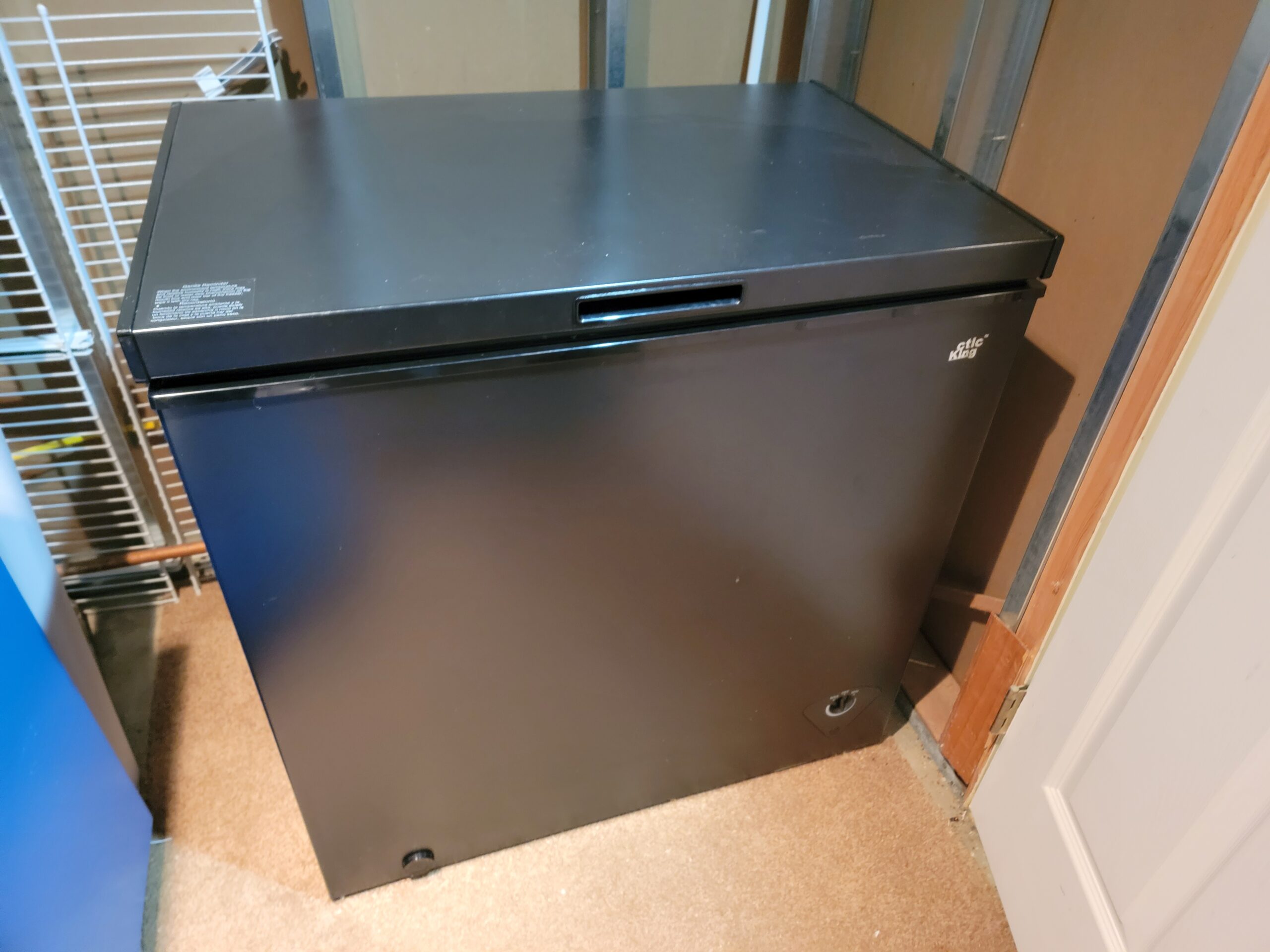
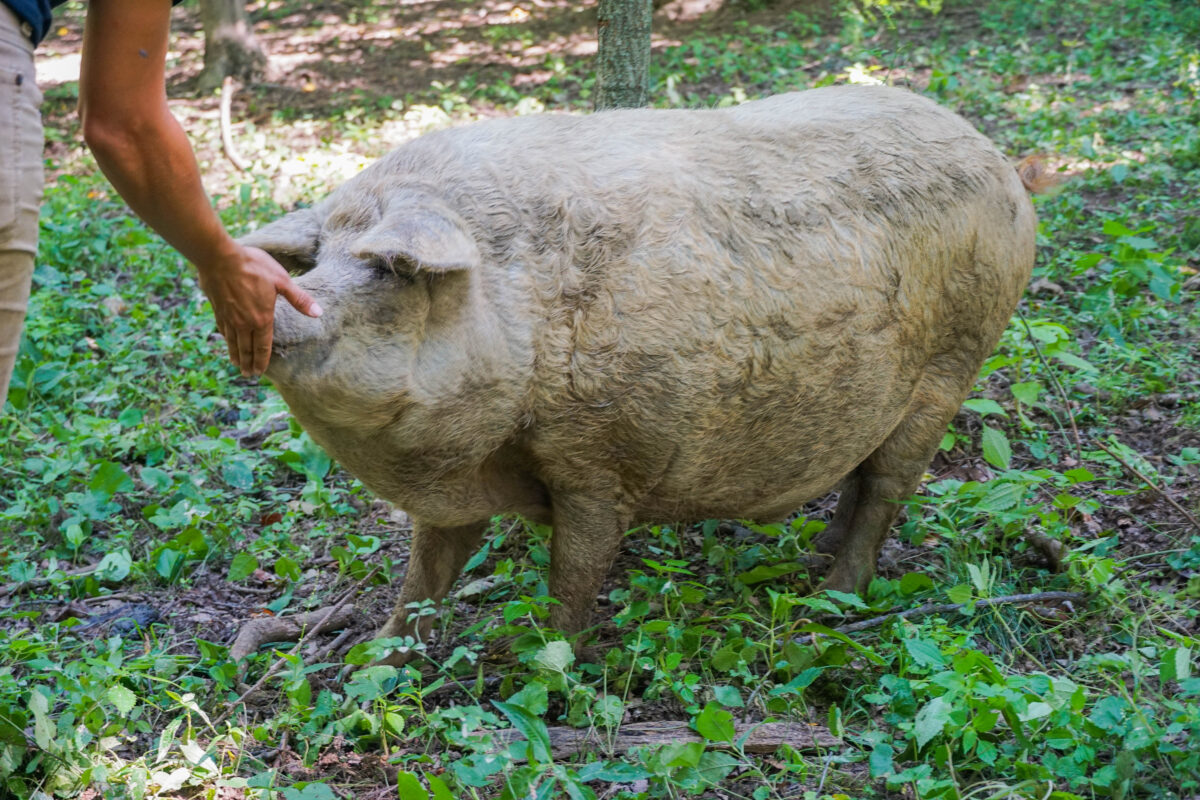
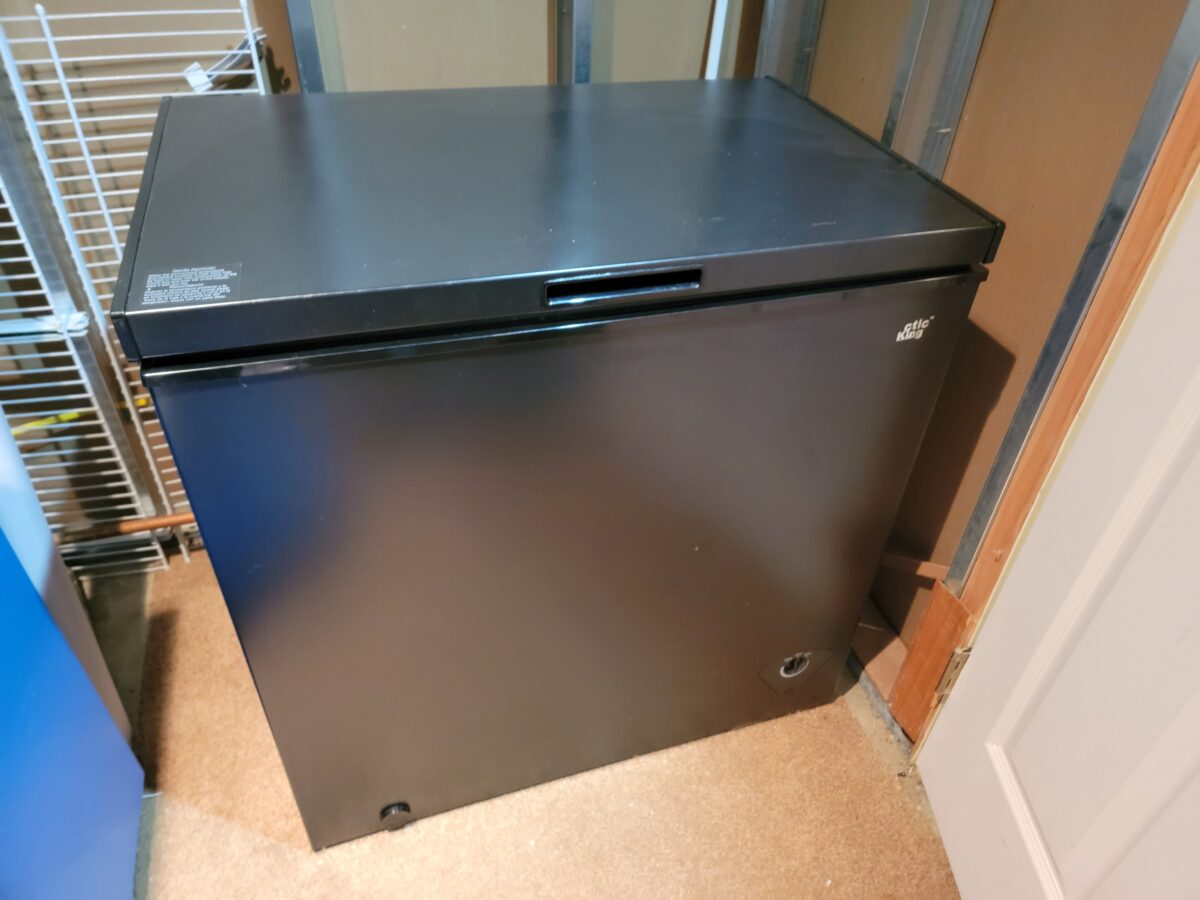
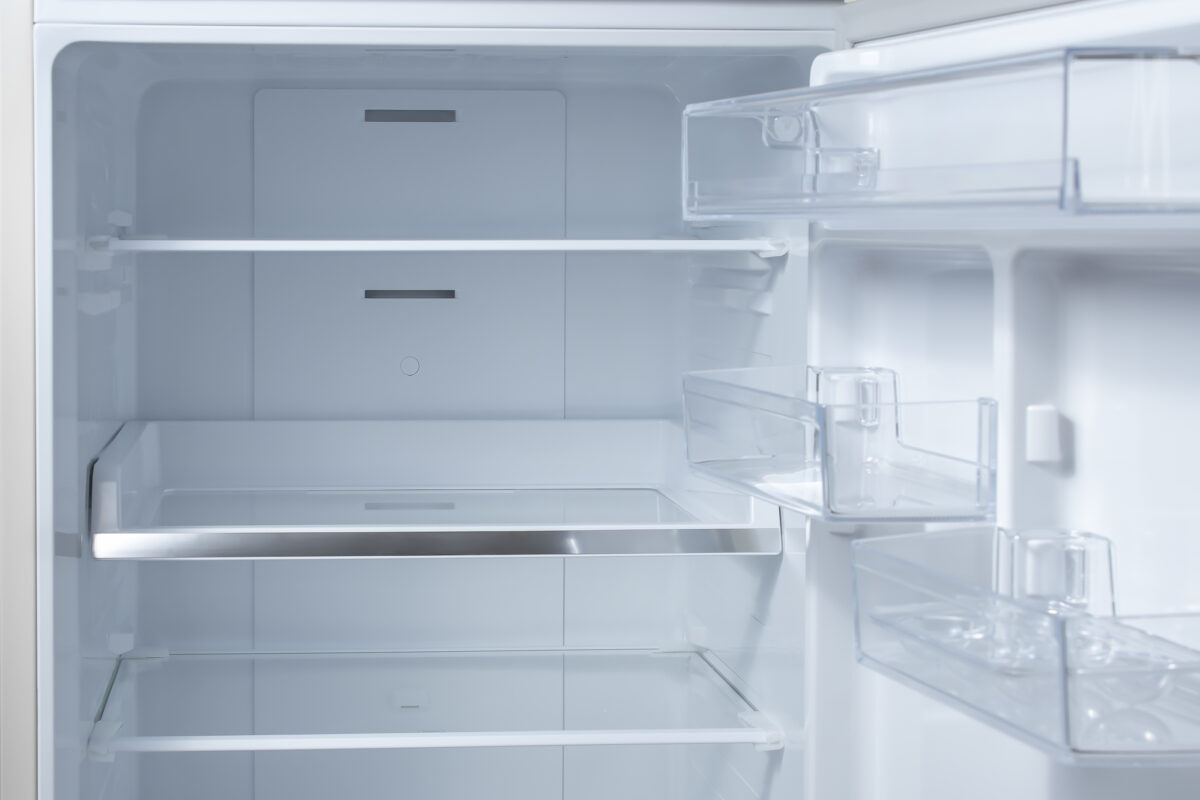
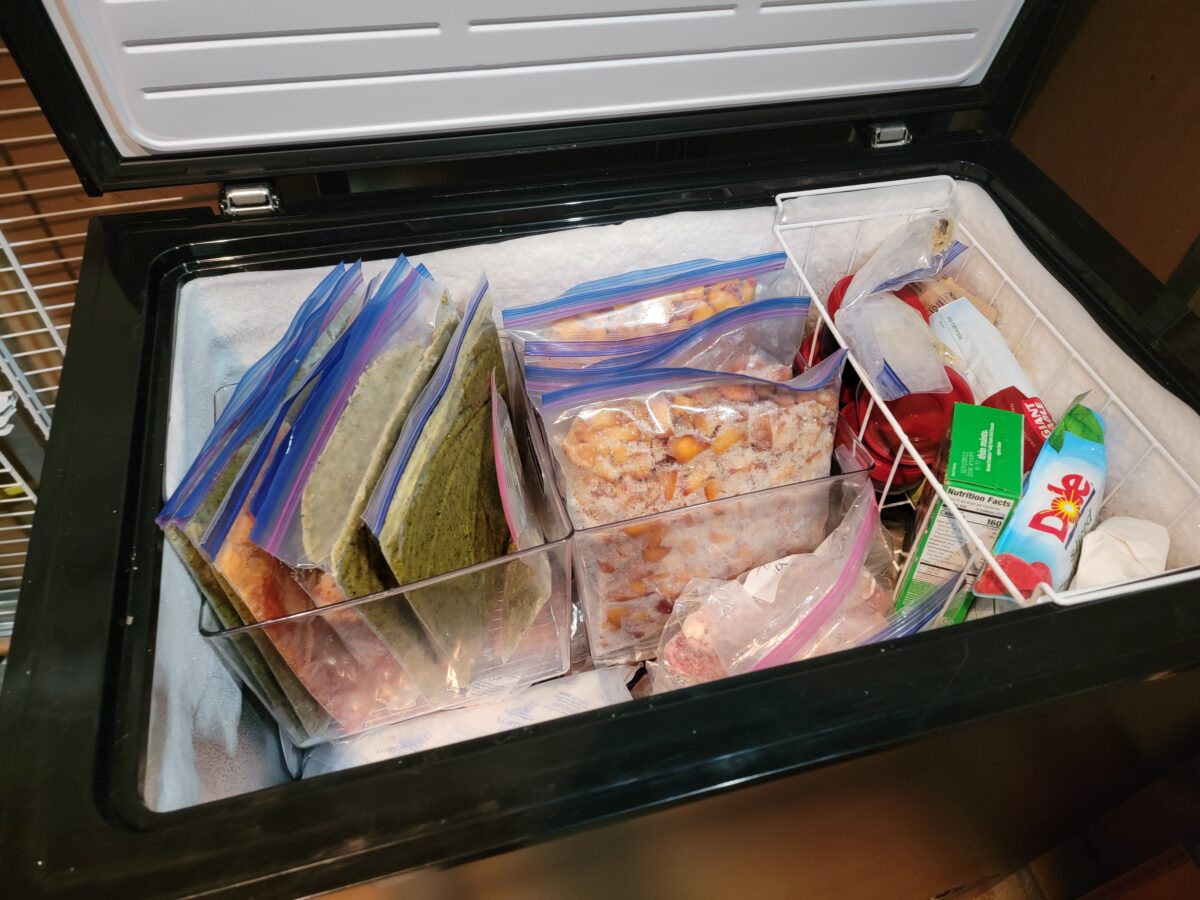
We have 2. One in the kitchen, the biggest one I could find. Another older one out on the deck. We use that for animal feed, medicines, vaccines, chick starter, dog meat and bones etc. And then… we have a cold room under the house, a walk-in fridge, for hanging animals after slaughter. We haven’t used it yet. But if we do slaughter a sheep (we can’t bring ourselves to do it, they’re too cute) we’ll need to buy a chest freezer for the meat. Both freezers are always full. We have solar, which offsets the electric costs, and a petrol generator for power outages – which are common here. So far so good.
Smart use of the outdoor one. Would never have considered that as an idea! Pretty awesome setup to even have a cold room. Wow! I wish I could have more room but our house is pretty small for storage space so after the chest freezer we’re not able to throw on much more (would love a second fridge but wouldn’t work without changing a room setup around.).